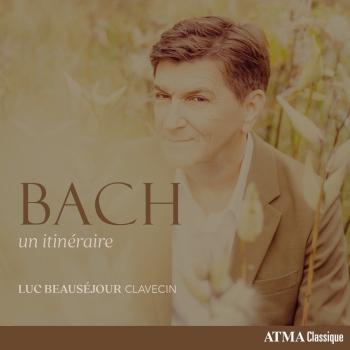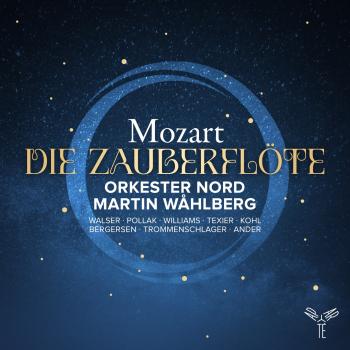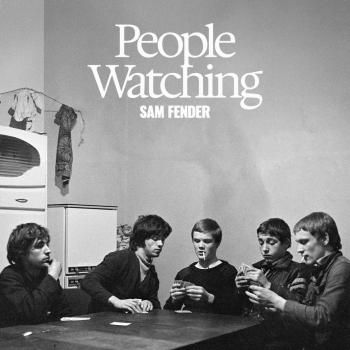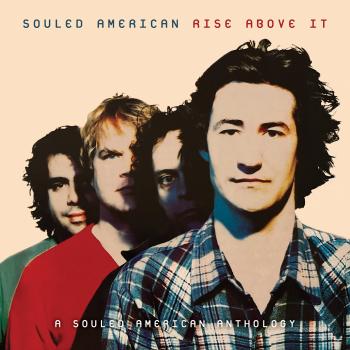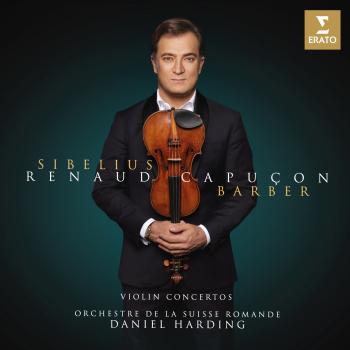
Liszt: Faust Symphony, Dante Symphony, Beethoven Symphony No.9 Leslie Howard & Mattia Ometto
Album info
Album-Release:
2024
HRA-Release:
31.05.2024
Label: Brilliant Classics
Genre: Classical
Subgenre: Instrumental
Artist: Leslie Howard & Mattia Ometto
Composer: Franz Liszt (1811-1886), Ludwig van Beethoven (1770-1827)
Album including Album cover Booklet (PDF)
- Franz Liszt (1811 - 1886): Eine Faust-Symphonie in drei Charakterbildern, S.647:
- 1 Liszt: Eine Faust-Symphonie in drei Charakterbildern, S.647: I. Faust 25:55
- 2 Liszt: Eine Faust-Symphonie in drei Charakterbildern, S.647: II. Gretchen 16:50
- 3 Liszt: Eine Faust-Symphonie in drei Charakterbildern, S.647: III. Mephistopheles und Schlußchor 22:02
- 4 Liszt: Eine Faust-Symphonie in drei Charakterbildern, S.647: IV. Zweiter Schluß 00:59
- Eine Symphonie zu Dantes Divina Commedia, S.648:
- 5 Liszt: Eine Symphonie zu Dantes Divina Commedia, S.648: I. Inferno 19:21
- 6 Liszt: Eine Symphonie zu Dantes Divina Commedia, S.648: II. Purgatorio — 14:18
- 7 Liszt: Eine Symphonie zu Dantes Divina Commedia, S.648: III. Magnificat — 05:24
- 8 Liszt: Eine Symphonie zu Dantes Divina Commedia, S.648: Zweiter Schluß 00:48
- Rákóczi-Marsch, S.652b:
- 9 Liszt: Rákóczi-Marsch, S.652b 10:44
- Beethovens 9te. Sinfonie, Op. 125 für 2 Pianoforte gesetzt von F. Liszt, S.657:
- 10 Liszt: Beethovens 9te. Sinfonie, Op. 125 für 2 Pianoforte gesetzt von F. Liszt, S.657: I. Allegro ma non troppo un poco Maestoso 17:52
- 11 Liszt: Beethovens 9te. Sinfonie, Op. 125 für 2 Pianoforte gesetzt von F. Liszt, S.657: II. Molto vivace - Presto 17:11
- 12 Liszt: Beethovens 9te. Sinfonie, Op. 125 für 2 Pianoforte gesetzt von F. Liszt, S.657: III. Adagio molto e cantabile - Andante Moderato 15:15
- 13 Liszt: Beethovens 9te. Sinfonie, Op. 125 für 2 Pianoforte gesetzt von F. Liszt, S.657: IV. Presto - Allegro ma non troppo - Tempo 1º 25:04
Info for Liszt: Faust Symphony, Dante Symphony, Beethoven Symphony No.9
The pre-eminent Lisztian of our day returns to Brilliant Classics for a symphonic sequel of transcriptions.
In 2018, Brilliant Classics issued Leslie Howard and Mattia Ometto playing the 12 symphonic poems of Liszt in the composer’s own transcriptions for piano duo (95748). The set won glowing reviews: ‘Not only do Leslie Howard and Mattia Ometto navigate Liszt’s technical challenges with fluency and ease,’ wrote Jed Distler for Classics Today, ‘but they also treat the scores seriously… Howard’s excellent annotations and Brilliant Classics’ budget price further clinch my recommendation for collectors.’
As before, Leslie Howard supplies his own, invaluable insights to accompany this trio of symphonies in Liszt’s transcriptions for piano duo. As with the symphonic poems, Liszt remains utterly faithful to the originals, preserving the spirit and sound of the orchestral scores without compromising the texts and, in the case of Beethoven’s Ninth, being scrupulously attentive to his hero’s great masterpiece. Howard and Ometta observe all of Beethoven’s (and Liszt’s) repeat markings in the Scherzo, presenting the fullest and most authentic text available.
The Faust Symphony has long been recognised as Liszt’s greatest orchestral work, and it ranks with the B minor Piano Sonata and the oratorio Christus as the noblest of his musical achievements. The two-piano version reached its final form by 1863, before Liszt added a short, ethereal passage to the coda of the second movement in 1880, and these bars are added in the present performance.
By its side, the Dante Symphony has often been overlooked and unjustly disparaged. Yet few compossers have depicted hell and damnation as vividly as Liszt (despite the composer’s own deep and optimistic Christian faith) in the opening Inferno movement, and its companion portrait of Purgatory is a wholly original musical conception whose harmonies prefigure many things later familiar from Wagner’s Parsifal or the symphonies of Bruckner.
Rather less familiar is Liszt’s transcription of his Rákóczy March for two pianos and eight hands, for which Howard and Ometto are joined by Leonora Armellini and Igor Roma. Unlike his solo-piano transcription of Beethoven’s Ninth, this piano duo version incorporates all the vocal parts within the instrumental texture.
Mattia Ometto, piano
Leslie Howard, piano
Mattia Ometto
The winner of a vast array of awards both in Europe and the United States, Ometto quickly established himself as an artist whose gifts hark back to the Golden Age of classical piano performance, gifts that reflect an artistry that is formed in equal parts by his Venetian background, the influence of his studies in Paris with the legendary Aldo Ciccolini, and in Palm Springs with the American virtuoso Earl Wild.
Ometto performs regularly in Europe and the United States. Following his recital debut in Paris at the Théatre du Rond Point des Champs Elysées and in New York City at Carnegie Hall, he appeared both in recital and as soloist with orchestra in New York (Carnegie Hall, Bargemusic), New Jersey, Des Moines (Sheslow Auditorium), Boston (Bradley Hall), Venice (Gran Teatro la Fenice), Milan (Sala Verdi), Berlin, in Los Angeles with the Lyric Symphony orchestra, in Ankara (Turkey) with Academic Baskent Orchestra, in Vidin (Bulgaria) with the Vidin State Philharmonic Orchestra, and in Padua (Italy) with the Orchestra di Padova e del Veneto. Ometto has also worked with renowned conductors such as Luigi Piovano, Maurizio Dini Ciacci, Charles Gambetta and Ertug Korkmaz, just to name a few.
Broadcasts of Ometto’s performances and interviews have been featured on numerous radio stations, such as BBC London, Kulturradio Berlin, France Musique, Rai International, Radiotre, Raitrade, Radio della Svizzera Italiana, Radioclassica, Radio Romania, Iowa State Radio, Kanal B Ankara, and WGBH Boston.
His discography comprises the critically acclaimed live recording of Poulenc’s Concerto for two pianos and Orchestra (Leonora Armellini, OPV, Luigi Piovano - Brilliant Classics), Johannes Brahms’ complete music for two pianos again with Leonora Armellini (Da Vinci) and the World Premiere Recording of the complete music for two pianos and piano four-hands by Reynaldo Hahn with the legendary pianist and Liszt scholar Leslie Howard (Melba Recordings, 2 CDs). Ometto and Howard are currently working on the recording of the Complete Music for two pianos by Franz Liszt (9CDs), the first part of which (The Symphonic Poems, 3 CDs) has been released to critical acclaim in September 2018. Upcoming releases will include the second part of the Liszt project (The Symphonies, 3 CDs) and a double CD featuring piano solo music by Nikolai Medtner (Piano Classics, 2022)
Born in Padua in 1982, Ometto graduated summa cum laude from the Venice Conservatory of music where he studied with Anna Barutti. Very active also as a teacher, he’s regularly invited to give master classes as a visiting artist in Europe and the United States and in 2022 will return for the fifth year to mentor piano soloist at Mastering Concertos, a program centered on concerto repertoire held annually in Vidin (Bulgaria).
Currently residing in Italy, Ometto is a Piano Professor at “B. Marcello” Conservatory in Venice.
Mattia Ometto is a pianist with a marvelous sensitivity, one of those artists whose responsibility is to make audiences perceive what real talent is”"
(Aldo Ciccolini, pianist – Paris)
Leslie Howard
Following his hugely successful 70th birthday concert in 2018, Leslie Howard returned to Wigmore Hall in 2019 celebrating 45 years of playing at this, his favourite venue. In the words of Director John Gilhooly “Thank you Leslie for your many fine recitals at Wigmore Hall for over four decades. It has always been a great joy to hear your performances.” 2019 also saw the release of one further CD of hitherto unrecorded pieces by Liszt, finally bringing the total to 100, and so extending the already unequalled accomplishment of the largest solo artist recording project in the history of classical music. (The new disc can be safely slotted into the famous complete Liszt boxed set which has been available from Hyperion Records since 2011.) This critically acclaimed project merited Leslie Howard’s entry in the Guinness Book of World Records, six Grands Prix du Disque, the Medal of St. Stephen, the Pro Cultura Hungarica award and a mounted bronze cast of Liszt’s hand presented by the Hungarian President.
Leslie Howard has balanced his prodigious recording career with an international concert itinerary which has seen him performing regularly throughout the world for more than half a century, always with a repertoire that seeks to extend the audience’s experience and to challenge accepted hierarchies of received wisdom. He has appeared regularly with the world’s finest orchestras, and has also pursued a distinguished career as a chamber musician, partnering many of the greatest solo musicians and ensembles of our time. Since a tour of Bangkok and Hong Kong in early 2020, the onset of Covid-19 has confined his work to online performances, recordings, lectures and masterclasses. He resumed public performances at the end of July 2021 with yet another recital at his beloved Wigmore Hall: Schubert ‘Wanderer’ Fantasy and 5 major Liszt pieces.
In addition to his solo Liszt recordings, Leslie Howard’s CD discography contains many other important world première recordings, including the four piano sonatas of Rubinstein, the three piano sonatas of Tchaikovsky and a disc of Scandinavian piano sonatas. All his early solo and duo recordings (with David Stanhope) of the music of Grainger have been reissued in a 5-CD set by Eloquence. There are also the Piano Quartets of Rubinstein – world première recordings for Hyperion, 25 Etudes in Black and White – his own compositions recorded for ArtCorp, and a disc pairing the two Rakhmaninov piano sonatas for Melba Recordings. Melba has also released two CDs with Mattia Ometto joining Howard in the complete music of Reynaldo Hahn for two pianos and piano duet. A work in progress, Brilliant Classics are issuing three sets each of 3 CDs of Liszt’s complete music for two pianos, again with Mattia Ometto – the first box contains all 12 of Liszt’s own two-piano versions of his symphonic poems. Leslie Howard’s latest solo release is of Beethoven’s ‘Eroica’ Variations and the complete ‘Creatures of Prometheus’ in Beethoven’s own solo piano version, for the Heritage label.
In his capacity as a renowned scholar working from primary sources, Professor Howard has produced 13 volumes of Liszt Society Publications for The Hardie Press, including the complete chamber music, 31 volumes of the annual Music Section of the Liszt Society Journal, and 9 volumes of the new Urtext Liszt scores for Edition Peters (with much-praised versions of the Sonata and the Années de pèlerinage). The distinguished Beethoven scholar Jonathan Del Mar has written that “Leslie is almost the only musician I know who manages to combine a flawless technique with the mind, the eye, the intellect and the scientific approach of the most rigorous scholar.” His other editorial work includes a new reconstruction and orchestration of Paganini’s fifth violin concerto for the collected Paganini Edition in Italy, the full score of Bellini’s ‘Adelson e Salvini’, and the now-standard two-piano score of Rakhmaninov’s 4th Concerto for Boosey & Hawkes.
Booklet for Liszt: Faust Symphony, Dante Symphony, Beethoven Symphony No.9

